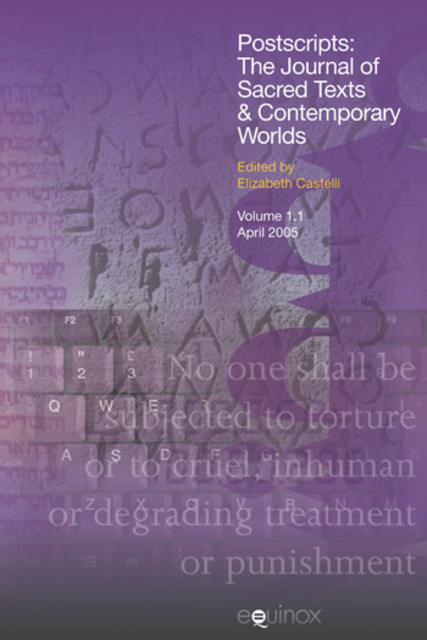The Guru and His Queer Disciple: The Guru-Disciple Relationship as the Locus of Christopher Isherwood’s Advaita Vedanta

Full description
Christopher Isherwood’s engagement with Vedanta falls outside the frame of conventional readings, confronting the assumption that religion and homosexuality are mutually exclusive. Isherwood was a committed follower of Vedanta’s nondualistic philosophy (advaita), which provided a nonjudgmental basis for his spiritual aspirations. This approach was crucial for Isherwood since his acceptance of a spiritual ideal and practice was critically dependent upon how his homosexuality was accepted. Pivotal in Isherwood’s life was his relationship with Swami Prabhavananda, whose influence was as profound as that of E.M. Forster. Isherwood produced a considerable output of religious writings in his career, yet he has been neglected as a religious writer. This paper interrogates colonialist condescension towards Isherwood as a “Hindu,” typically opposing Western “reason” against Hindu “superstition.” The paper concludes by suggesting that Isherwood’s interpretation of Ramakrishna was not based upon a homosexualist hermeneutic, but rather one based on the freedom found in Guru Bhakti.
- typeImage
- created on
- file formatjpeg
- file size68 KB
- container titlePostscripts
- creatorPravrajika Vrajaprana
- issn1743-8888 (online)
- issue4.3
- publisherEquinox Publishing Ltd.
- publisher placeSheffield, United Kingdom
- rightsEquinox Publishing Ltd.
- volume
- doi
We use cookies to analyze our traffic. Please decide if you are willing to accept cookies from our website. You can change this setting anytime in Privacy Settings.
